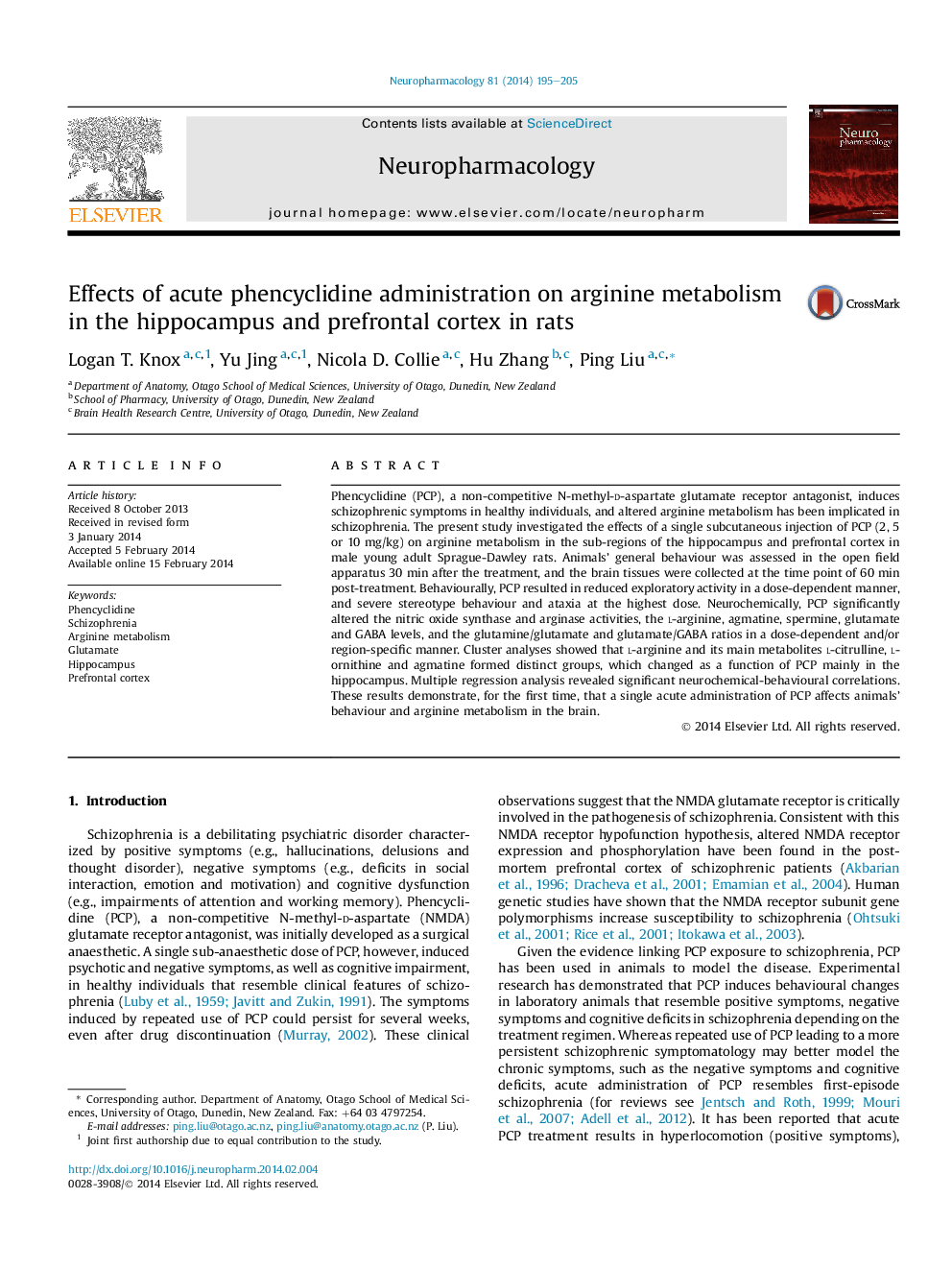| Article ID | Journal | Published Year | Pages | File Type |
|---|---|---|---|---|
| 2493245 | Neuropharmacology | 2014 | 11 Pages |
•Phencyclidine dose-dependently altered exploratory and locomotor activities.•Acute phencyclidine altered neurochemistry in the prefrontal cortex and hippocampus.•Altered clusters as a function of phencyclidine.
Phencyclidine (PCP), a non-competitive N-methyl-d-aspartate glutamate receptor antagonist, induces schizophrenic symptoms in healthy individuals, and altered arginine metabolism has been implicated in schizophrenia. The present study investigated the effects of a single subcutaneous injection of PCP (2, 5 or 10 mg/kg) on arginine metabolism in the sub-regions of the hippocampus and prefrontal cortex in male young adult Sprague-Dawley rats. Animals' general behaviour was assessed in the open field apparatus 30 min after the treatment, and the brain tissues were collected at the time point of 60 min post-treatment. Behaviourally, PCP resulted in reduced exploratory activity in a dose-dependent manner, and severe stereotype behaviour and ataxia at the highest dose. Neurochemically, PCP significantly altered the nitric oxide synthase and arginase activities, the l-arginine, agmatine, spermine, glutamate and GABA levels, and the glutamine/glutamate and glutamate/GABA ratios in a dose-dependent and/or region-specific manner. Cluster analyses showed that l-arginine and its main metabolites l-citrulline, l-ornithine and agmatine formed distinct groups, which changed as a function of PCP mainly in the hippocampus. Multiple regression analysis revealed significant neurochemical-behavioural correlations. These results demonstrate, for the first time, that a single acute administration of PCP affects animals' behaviour and arginine metabolism in the brain.
